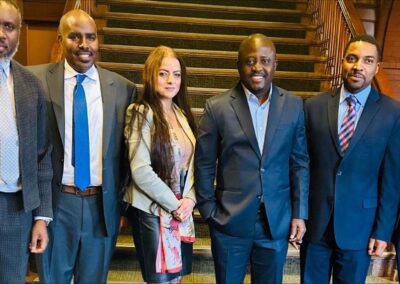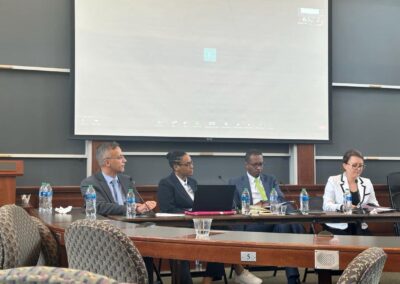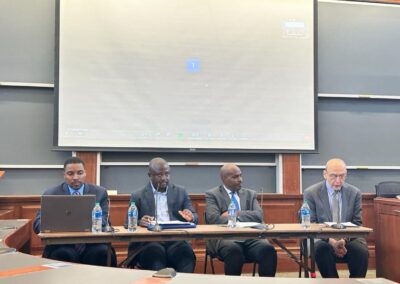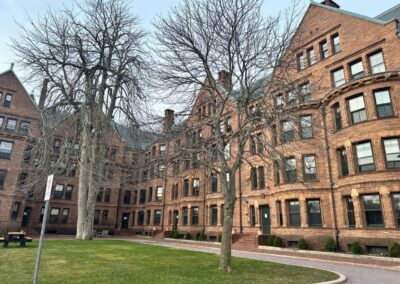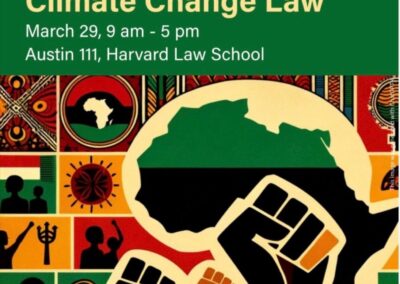Friday, 29 March 2024, 8:30 – 17:00 EST, Harvard Law School, Austin 111, Cambridge
The Center for International Law & Policy in Africa (CILPA), along with the Human Rights Program (Harvard Law School) and the Dullah Omar Institute at the University of the Western Cape, co-organized an all-day academic symposium on “African Perspectives on International Climate Change Law” as part of Harvard Law School’s series of Climate Justice Events. It was also co-sponsored by the Salata Institute, the Petrie-Flom Center, the David Rockefeller for Latin American Studies, the Human Rights Entrepreneurs and Incubator Clinic, and the Program on Law and Society in the Muslim World.
Although African States have signalized a willingness to play a significant role in global climate matters, it is far from clear whether or how much they will participate in shaping international climate change law. This is despite the fact that Africa has contributed only to a very limited extent to the climate crisis, with just about 4% percent of global cumulative emissions, and stands out disproportionately as one of the most vulnerable regions in the world. The symposium was a foreground for African perspectives on international climate change law which, due to pre-existing power structures, are more likely to be overlooked in global norm-making processes.
The symposium consisted of 4 panels, with topics ranging from the participation of African States in shaping international law, common but differentiated responsibilities, adaptation and mitigation, and human rights and climate change. Panelists included members of academia, practitioners, judges, and government and international organization representatives from Africa and globally.

